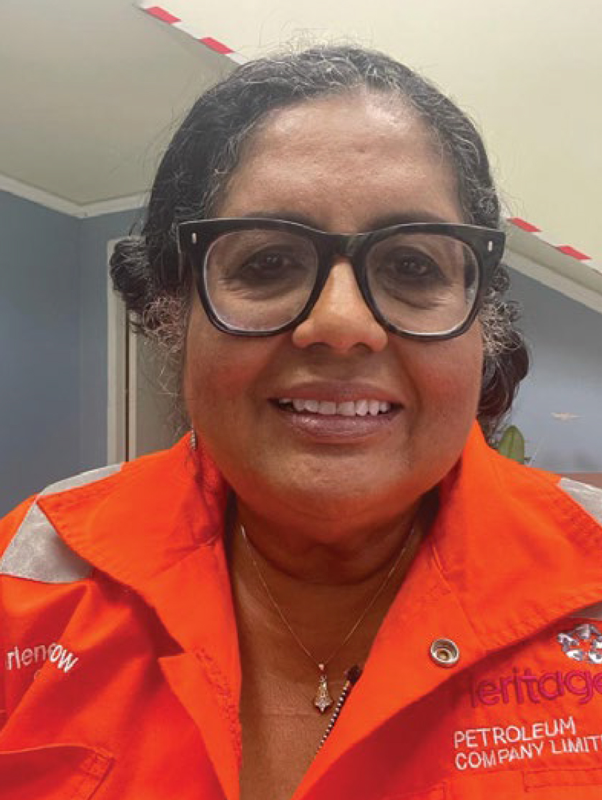During my years in BP Alaska, I had three different jobs. I went in as Infrastructure Manager, and almost immediately faced my first challenge.
There was an earthquake and a volcanic eruption, the snow turned black, and it became completely dark, with temperatures dropping to -60°F with wind chill. I had barely unpacked and I had three thousand very unhappy guys stuck on the slope as the planes couldn’t fly. It was, as we say in the industry, like “drinking from a firehose” to try to house, feed men and gradually get them home. As if that wasn’t enough of a baptism, worse occurred. During a period when I was holding on for my boss, who was on vacation, there was a fatality. I had to take control of the emergency. Some of my decisions, particularly as I was a newcomer, weren’t well received. The men on the slope had gone through so much trauma over the years that they couldn’t function in the immediate aftermath of the fatal incident, and I was insisting that they conduct the necessary incident management and shut down activities. The slope is an unforgiving place. They thought I was being heartless when I said, “Our colleague has died. God rest his soul. Now we need to protect the living. We will grieve later.” I remember the resistance, the bad-mouthing, but I had to do what was necessary to ensure the safety of the other workers in my charge.

My mother never wanted me to be a geologist. She said, “That’s man wuk,” and, in truth, I learnt, early o’clock, that part of the job description for a woman in this industry, is having to constantly prove that you can do the job as well as a man.
And I did grieve. The psychologist who came to the slope after the fatality called me “Mother Earth,” as I had to be tough and empathetic at the same time. We had a funeral on the slope: the day was a total whiteout with snow and the temperature was about -20°F. I looked out my office window as the men and vehicles – about fifty trucks and snow ploughs included – drove with lights and horns blazing, the American and Alaskan flags flying, as they passed the area where our colleague died. I was wracked with sobs. I felt a pain, all the way to my stomach, for the life of a colleague and the weight of the lives of three thousand men. Later, the same men who had resisted me in the immediate aftermath, came and apologised, acknowledging I had done the right thing.
As a result of how I handled that incident, the Regional President gained confidence in me. I was given the job of reorganising the whole of the Alaska operation into a functional model. For six months, I was holed up with a small team, redesigning the organisation. Although the ultimate decision on what the company would look like was not mine – all I had was some influence on the redesign – my role rendered me a kind of pariah. When people passed me on the corridors, they wouldn’t look me in the eye. They knew that redesign meant some people would have to go home. It was a thankless job but I’m proud of what I accomplished with my team, as we treated people with respect and dignity. Subsequently, I was given the job of Area Operations Manager for all the North fields in Alaska.
It may seem like the twenty-two-year-old Arlene, who didn’t know how to respond to sexual harassers, had disappeared, transforming instead into a confident, tough woman. But, if I’m honest, I have to say I was scared when I arrived in Alaska. In the middle of my heart, I was terrified.
Excerpted from A Different Energy: Women in Caribbean Oil & Gas by Celeste Mohammed (December 2023) with permission from Words Matter Communications Limited.
JUNE is Caribbean American Heritage Month.
Over the last decade, as global energy has become hyper-focused on the Southern Caribbean, the role and opinions of local women have too often been overlooked. In this compelling, first-of-its-kind book, lawyer-turned-writer Celeste Mohammed remedies that omission.
Mohammed is a Trinidadian whose fiction has won numerous international awards including a 2018 PEN/Robert J. Dau Short Story Prize and the 2022 OCM Bocas Prize for Caribbean Literature. She holds an MFA in Creative Writing from Lesley University, Cambridge, Massachusetts.
A Different Energy: Women in Caribbean Oil & Gas (Words Matter Communications; December 2023) is Mohammed’s non-fiction debut. With powerful, eye-opening portraits of eight Trini, Surinamese and Guyanese women who are employed in the Caribbean oil and gas industry, Mohammed uses the breadth of her story-telling range to keep the gender conversation refreshingly candid, often humorous, and always thought-provoking.
The book’s commentary and analysis extract from the women’s stories lessons for any woman seeking to defy odds, shatter stereotypes, and forge paths in a business culture which underestimates her.
Oil and gas operations are commonly found in remote locations far from company headquarters. Now, it's possible to monitor pump operations, collate and analyze seismic data, and track employees around the world from almost anywhere. Whether employees are in the office or in the field, the internet and related applications enable a greater multidirectional flow of information – and control – than ever before.



